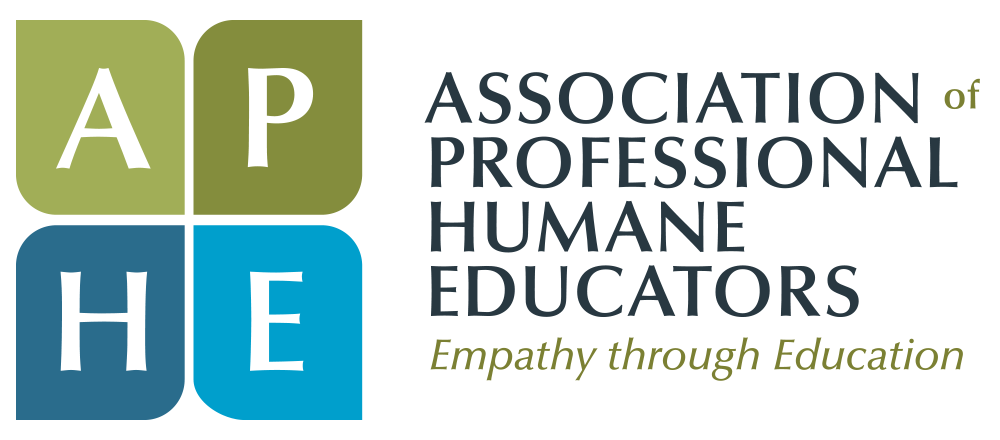Beyond the Warm & Fuzzy: Benefits of Humane Education For Ages 5-8 Years Old
By Lisa Wiehebrink
Children’s Book Author & Founder of Tails That Teach
We all remember our first pet. Chances are, that pet was your first friend, your favorite playmate, your secret keeper, and a source of comfort when you needed it most. Aside from the warm and fuzzy feelings we experienced, and unbeknownst to us, we were also learning valuable life lessons.
Animal organizations that offer humane education for children ages 5-8 years old are seizing a golden opportunity to build upon the special connection children naturally have with animals. Research shows that early humane education helps develop positive interactions with animals, empowers kids with age-appropriate responsibility, and instills compassion to last a lifetime. It’s no secret that children have a natural affinity for animals, which lends itself to having an unbreakable bond with pets ranging from dogs, cats, and horses, to even lizards and goldfish. These relationships are often referred to as being “magical” and are transformative for many reasons. Children in grades K-2 are just learning about themselves and the world around them — so it fascinates them to be responded to by a pet. In other words, they are able to see the cause and effect of their actions. This keen awareness helps them to learn what is acceptable behavior and unacceptable behavior, which ultimately bridges into relationships with their peers.
Traditional humane education is most often geared to older children starting at about age 8; but research shows that it is critical to start even earlier. While very young children may not understand the responsibility of spay and neuter just yet, they easily grasp simple tasks that can help guide them to be responsible pet owners now and later as they grow. Whether through a school visit or community program, humane educators can effectively reach this younger demographic by demonstrating safety around animals, gentle play, kind language, and respect for another’s space. These incredible lessons will not only keep more pets in homes, but will inspire children as they witness the fruits of their efforts. When my organization, Tails That Teach, visits local schools or scout groups, we always explain to the kids that they are real-life superheroes and, through a series of fun questions, we reveal that all of their power (kindness) is found in their heart. Every child in the room lights up, and you can just see the wheels turning with inspiration as we go on to explain how they can make a world of difference with that incredible power.
Early exposure to humane education also helps children develop empathy by learning to understand the feelings and needs of others. Pets respond to emotional cues; so with exposure to animal interactions, children are more likely to better understand complicated feelings like patience, acceptance and tolerance. This respect can translate into actions that benefit society as a whole.
In addition to humane education for ages 5-8, shelter reading programs are another way to positively impact emerging readers. With lesson-based books like Love Me Gently: A Kid’s Guide for Man’s Best Friend, the benefits are twofold. First, the child learns about proper pet care while practicing their reading skills in front of a nonjudgmental audience (dogs and cats). In addition, the animals are getting much-needed attention and socialization.
When young children are taught to be kind to animals, the ripple effects are boundless. If you’ve thought about offering early humane education, you will be a part of an innovative movement toward a more compassionate society. It is through the human-animal bond that children learn caring connections toward all living beings, making a better future for animals and people.

About the author: Lisa Wiehebrink is the founder of Tails That Teach and an award-winning author of children’s books that uniquely bridge the connection between animals and people including Love Me Gently; A Kid’s Guide for Man’s Best Friend and Gray Whiskers; A Kid’s Guide for Loved Ones Growing Older. Tails That Teach donates the books to humane societies and elementary schools around the world to inspire kindness to animals and to encourage literacy.

.png)
